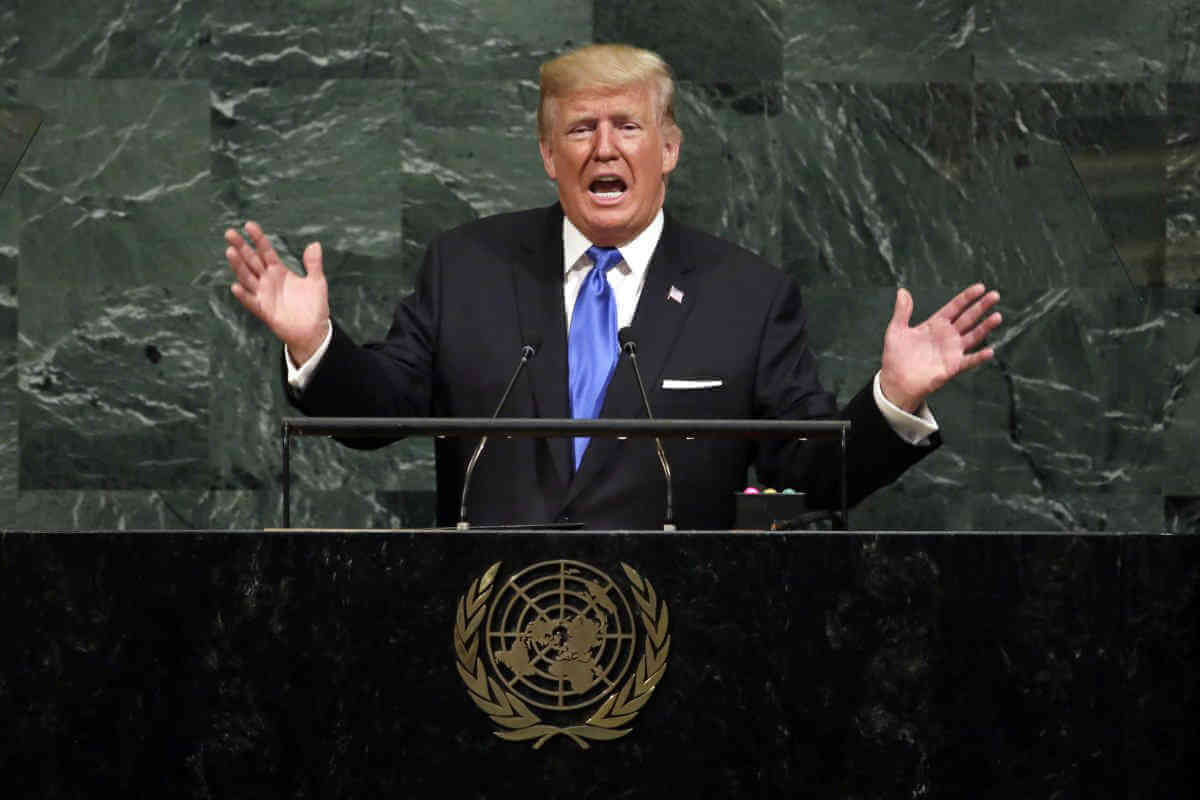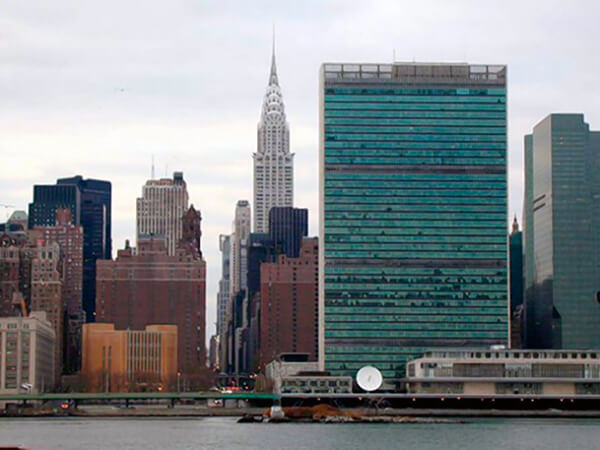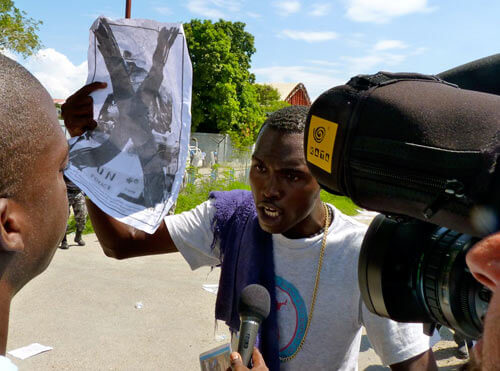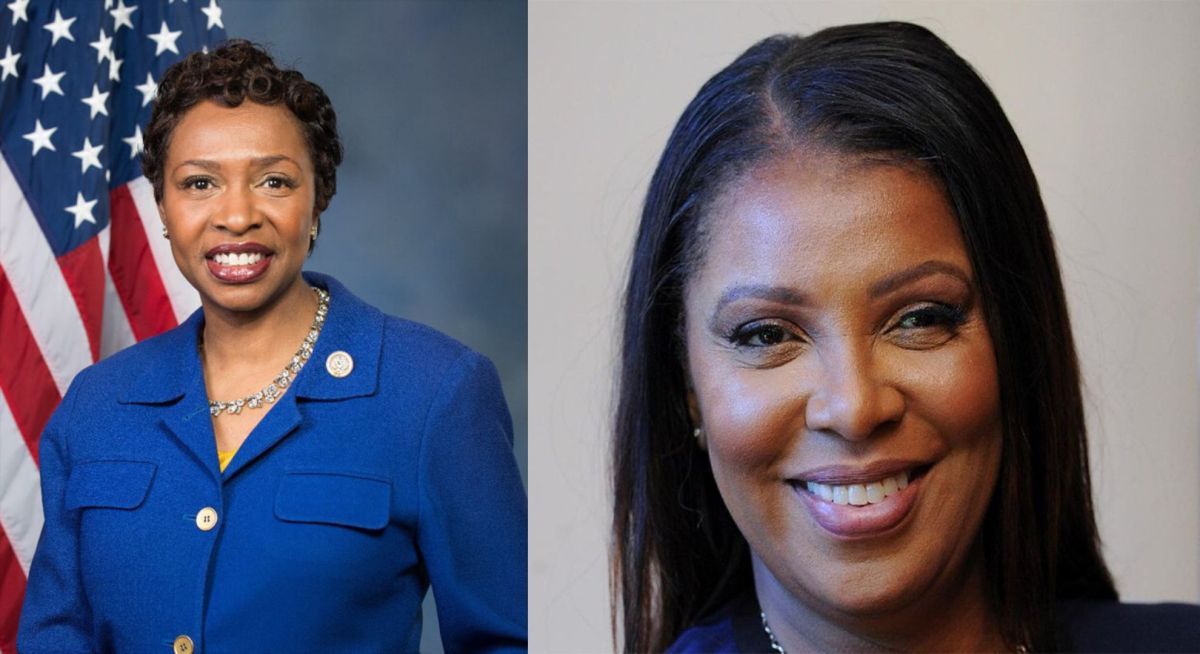UNITED NATIONS, April 26, 2018 (IPS) – When a Malaysian politician of a bygone era was asked about the “leading newspapers” in his country, he shot back: “We don’t have any leading newspapers in our country because all our newspapers are misleading.”
But that comment, perhaps uttered half-jokingly about two decades ago, underwent a reality check recently when the Malaysian government passed legislation to impose prison sentences up to six years in jail if journalists are found guilty of spreading “fake news.”
The bill defines fake news as “any news, information, data and reports which is, or are, wholly or partly false, whether in the form of features, visuals or audio recordings, or in any other form, capable of suggesting words or ideas.”
And ever since President Donald Trump repeatedly used the term last year — more so to deny even the most verifiable facts and figures — some of the developing nations have followed in his jackbooted footsteps trying to muzzle the press, primarily on negative stories.
A president in perpetual denial, Trump has been described as a “serial liar” by his former Director of the Federal Bureau of Investigations (FBI) James Comey — and some of the lying is meant to denigrate journalists whose stories and exposes are dismissed as “fake news.”
Steven Butler, Asia Program Coordinator for the Committee to Protect Journalists (CPJ) told IPS: “Many Asian governments — including Malaysia, Singapore, and the Philippines — have jumped on the “fake news” bandwagon started by President Trump.”
But more broadly, he pointed out, the lack of a strong U.S. voice promoting the basic value press freedom at the heart of the U.S. constitution has emboldened governments — from China to Pakistan.
“Governments that wish to suppress freedom of expression know that the U.S. President will give them a free pass, something they could not count on in the past. Citizens of these countries need to find their own way to struggle for press freedom,” declared Butler.
In early April, India threatened to penalize journalists for spreading “fake news.” But in less than 48 hours the government had second thoughts and annulled the announcement without an explanation.
Norman Solomon. executive director of the Washington-based Institute for Public Accuracy and co-founder and coordinator of Roots
“Trump’s denunciations of “fake news” amount to a new rhetorical wrinkle in centuries-old techniques of blaming the messengers for unwanted news,” he added.
Governments, like large corporations, are in the business of news management, Solomon said, pointing out that “they use powerful megaphones and an array of leverage to gain favorable media coverage and suppress or discredit unfavorable coverage.”
In some societies, he noted, the repression takes the form of threats, raids, prosecution and imprisonment. In more democratic societies, the repression is apt to take the form of “soft power” inducements, economic carrots and sticks, massive public-relations campaigns and nonstop floods of propaganda.
In the midst of all this, journalists constantly face a challenge of pursuing facts and underlying truths no matter where they might lead, he argued.
In some countries, the obstacles induce fear of imprisonment or even death, while in other countries the fears are along the lines of stalled careers and loss of employment, said Solomon, author of “War Made Easy: How Presidents and Pundits Keep Spinning Us to Death.”
In an oped piece titled “Mr. Trump’s War on the Truth,” the New York Times said in early April that when Trump calls every piece of information he does not like “fake news,” he also encourages politicians in other countries, who are not constrained by constitutional free speech protections or independent judiciaries, to more aggressively squelch the press.
“They know that there will be little international condemnation of their actions because one of the most important standard bearers for a free press – the American government—is led by a man trying to discredit the free press.”
Ian Williams, author of “UNtold: The Real Story of the United Nations in Peace and War*, told IPS that to some extent all news is “fake” but some are flakier than others. But there are degrees of objectivity.
“Fake News” is a real problem – more as an accusation that kills serious debate than as a category of news in itself. Ideologues of both right and left use it to block acceptance of inconvenient information. The main stream media (“MSM”) are particularly reviled, he added.
As Pontius Pilate said, “What is truth?”
“I have a hierarchy of veracity. I would rather believe my own lying eyes than any media source! I watched the planes hit the WTC for example. Do I trust the MSM? Not much, and I would examine its content critically.”
In general, Williams said, the MSM is more conspicuous for what it ignores than for its lies, and it often reveals its biases. In particular the American media depends on government sources and is often naively trusting of them although Trump’s behaviour might be altering that.
For all its faults, he said, the MSM has competition and the fear that it might be scooped by rivals. On the other hand that means it has a herd mentality, so it collectively and uncritically bought into the Iraq WMDs and spurious scandal of “Oil for Food,” said Williams, a senior analyst who has written for newspapers and magazines around the world, including the Australian, The Independent, New York Observer, The Financial Times and The Guardian.
“But I would trust them before Fox, Murdoch tabloids and Breitbart, and above all before authoritarian state news agencies where an editor would lose his or her job and possibly head for not toeing the line.”
He pointed out that the BBC sometimes criticises its government. SANA and Russia Today never!
“And I also mistrust “Independent” journalists, who have permission and help to enter totalitarian states so they can tell the “truth” and expose MSM lies, sometimes at government organised press conferences. I scour their work assiduously but vainly for any hint of criticism of their hosts!”
Is the UN reliable?, he asked.
“Largely so, because it is so leaky that when reports are doctored, word leaks out and there are 193 missions checking for bias and rushing in with corrections,” said Williams, a former UN correspondent for The Nation, and author of “Rum: A Social and Sociable History of the Real Spirit of 1776;” “The Deserter: Bush’s War on Military Families, Veterans and His Past;” “The Alms Trade;” and “The UN For Beginners.”
Solomon, of the Institute for Public Accuracy, told IPS that in every society, there is a vital need for ongoing truth-telling that can make democracy real as the informed consent of the governed.
Right now, in the United States, Russia and China, and scores of other nations, people at the top of the governmental and economic power structures are eager to gain and maintain the uninformed acquiescence of the ruled.
“No matter how different the social, political and media systems may be, journalists face the challenge of overcoming the overt or tacit censorship efforts by government, corporate owners or wealthy individuals. The imperative goal is to make good on the potential of press freedom,” declared Solomon.
Meanwhile, a Joint Declaration by the UN Special Rapporteur on Freedom of Opinion and Expression, David Kaye, along with his counterparts from the Organization for Security and Co-operation in Europe (OSCE), the Organization of American States (OAS), and the African Commission on Human and Peoples’ Rights (ACHPR), reads: “Fake news” has emerged as a global topic of concern and there is a risk that efforts to counter it could lead to censorship, the suppression of critical thinking and other approaches contrary to human rights law.”
“In this Joint Declaration, we identify general principles that should apply to any efforts to deal with these issues,” said a statement released in March.
The declaration identifies the applicable human rights standards, encourages the promotion of diversity and plurality in the media, and emphasizes the particular roles played by digital intermediaries, as well as journalists and media outlets.
The writer can be contacted at thali
























